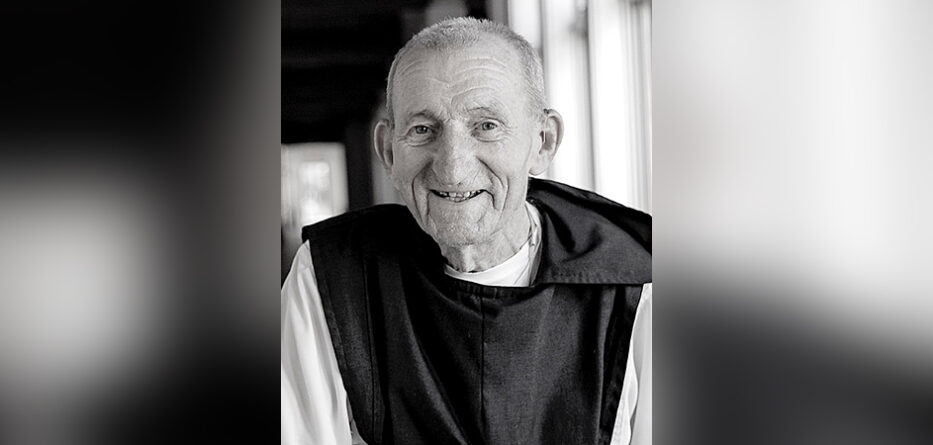Brother Mary Joseph lay in state at Mepkin Abbey, his simple funeral liturgy soon to begin. It would certainly be fitting for a man who had lived an equally simple life here along the banks of the Cooper River in South Carolina. He had lived here for over 70 years, voluntarily out of the world’s sight, as any monk would avow was his life’s purpose.
Just a few months past his 97th birthday, his earthly self had just given out, perhaps urged on to the next life by a bout with the dreaded coronavirus the monastery had almost successfully kept at bay.
When so many young men coming of age in his close-knit Chicago Polish parish answered the call to service during World War II, 17-year-old Walter Szwedo sought to live a commitment of Semper Fidelis not by attaching U.S.M.C., but instead O.C.S.O. to his name. The Order of Cistercians of the Strict Observance, or Trappists, as they are better known, called not for a time-limited enlistment, but a life’s commitment to seeking, as the sign under which he walked entering Gethsemani, “God Alone.”
He was not destined for the priesthood like Merton, but would serve as a Trappist brother, doing manual labor as the choir monks spent hours in church, Gregorian chant wafting to the soaring, vaulted ceiling. For some observers, his might be considered a lesser vocation, but not to Brother Joseph. He relished each task he was given over the years, scrubbing pots in the refectory kitchen, working in the monastery sawmill, or grinding a precise amalgam of grain for the Mepkin chickens. He loved making rosaries in his later years, and birds and squirrels scrambled to his doorstep at the squeak of his hinge.
You could tell this simple life was a good fit; it showed on his craggy, well-lined face. There was no job too ordinary or another in which one might take undo pride; all were for the greater honor and glory. All were done with that wonderful smile.
To continue reading this article, click here.
Paul Wilkes is the author of many books, including Beyond the Walls: Monastic Wisdom for Everyday Life, which is set at Mepkin Abbey. He is the writer and co-director of the PBS documentary “Merton: A Film Biography.”
With thanks to America and Paul Wilkes, where this article originally appeared.








